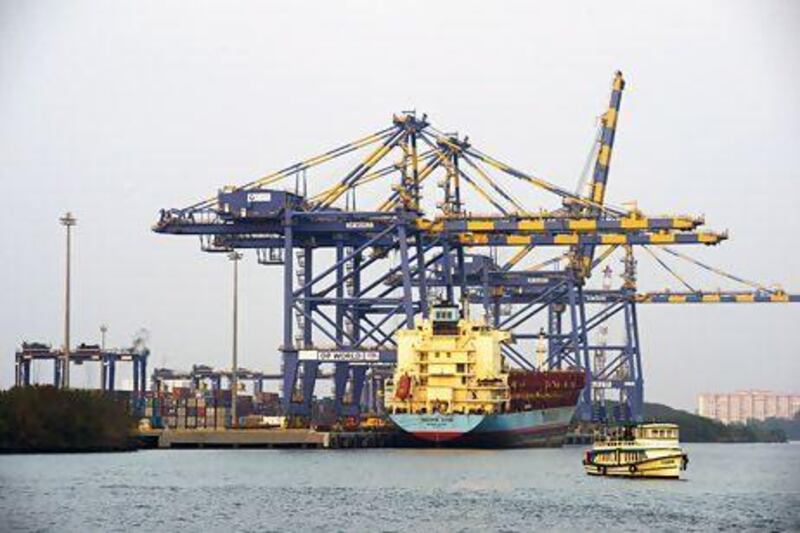KOCHI // On the bustling Marine Drive waterfront parade, a recently opened SFC Plus fast food restaurant serves fried chicken to passers-by.
It is the first outlet in India for the UAE-owned company and is just one example of the growing commercial links between Kerala and the Emirates.
There are even bigger investments to be found beyond that.
Just across the water, there is a container terminal that is owned and operated by Dubai's DP World. Drive into the city and there is a vast 16 billion rupees (Dh1.08bn) Lulu shopping mall, being developed by the Abu Dhabi-based Emke Group, that is nearing completion. Head to the edge of Kochi where Tecom Investments, part of Dubai Holding, is planning to build a version of Dubai's Internet City, with investment from the company and other developers expected to exceed 40 billion rupees in its first phase.
There have long been strong migration flows from Kerala to the UAE and the wider Arabian Gulf region, as Indians have sought job opportunities or headed abroad to start businesses.
Indians from Kerala are estimated to make up about half of all residents from India in the UAE. In recent years, more investment has started to flow back into Kerala from the UAE, as investors aim to tap India's growing economy.
"The UAE and Kerala particularly have got a very strong relationship," said Savio Mathew, the secretary of the Kerala Chamber of Commerce and Industry. "Many Keralites are in the UAE in various categories, right from employees up to business people. The UAE has invested so much in Kerala."
Yusuff Ali, the managing director of Emke Group, is originally from the Indian state of Kerala. He launched the LuLu Hypermarket after joining the group, which was founded by his uncle, MK Abdulla, in Abu Dhabi more than four decades ago.
Projects such the Lulu mall and SmartCity are expected to create thousands of job opportunities for Keralites who might otherwise have travelled abroad to find work.
"That scenario is slowly changing, India is now mature and moving into the high end of the chain for the knowledge industry," says Baju George, the managing director of SmartCity Kochi. "People are not that keen to move to the Gulf or other places because they can get a decent salary and they are closer to their families, their society. Ventures like SmartCity will open more avenues for such Indians to be gainfully employed in India itself."
The project, which was first announced in 2004 has been severely delayed, but construction work is now due to start in the next five months.
"Everybody knows the potential of this SmartCity project," said Mr Mathew. "Once it has materialised, SmartCity can turn Kochi into something much bigger than Bangalore, which is called the IT capital.
"We had a meeting with the prime minister of India and he casually mentioned that Kochi should be the IT capital of India because we have so many educated people, exports in IT," Mr Mathew added. "But since there's a lack of facilities, people are forced to go to other major cities to pursue IT activities."
The UAE is the 10th biggest investor in India in terms of foreign direct investment, having injected US$2.2bn (Dh8.08bn), according to the Indian government.
Trade between the two countries reached about Dh100bn during the first eight months of last year, according to figures from the UAE's Ministry of Foreign Trade. India is the UAE's biggest trading partner.
Figures show that trade between the two countries increased by 18.8 per cent in 2010 to 2011.
Sheikha Lubna Al Qasimi, the Minister of Foreign Trade, met India's minister of commerce, industry and textiles in Dubai last week and discussed proposals that could strengthen bilateral trade and investment.





